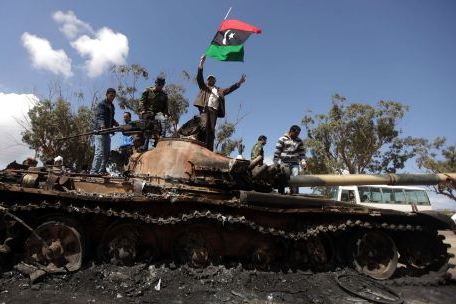Iran Should Recognize the National Transition Council

IRD: What scenarios can we imagine for Libya?
QM: I think it is too early to predict the future direction of Libya. We are talking about a tribal society which lacks civil institutions such as political parties. So it is hard to assert that the opposition will remain united after the ouster of Qaddafi. The worst-case scenario would be the Somalia-zation of Libya-- where rival factions would claim their own territory in Misrata, Sirte, Benghazi and other cities-- but the optimistic contingency is formation of a national unity government in Libya.
Clearly, the next Libyan political system will only take shape with foreign pressure. Otherwise, a self-motivated agreement between the opposition factions after the fall of Qaddafi is unlikely. The favorable option is that Turkey, European governments and major Arab countries like Egypt support the formation of an interim national unity government up until a presidential election which itself would be a challenge, just as it caused problems in Afghanistan and Iraq.
IRD: You spoke of foreign mediation in order to shape the new political system in Libya. How will Russia and China react to the new situation?
QM: This is a major challenge. The Russians and Chinese have key interests in Libya, just as France, Britain and other Western countries do. Libya’s rich oil resources have complicated the situation. Beijing had signed major oil contracts with Qaddafi’s regime and Russia was the key arms provider for the Libyan dictator. They are definitely worried about their relations with the next regime. Arab countries also have their particular concerns. Algeria, Libya’s neighbor, has not recognized the National Transition Council. Syria may also prefer to see Libya remain unstable.
IRD: There are also worries about radical Islamist groups, such as al Qaeda, gaining ground in Libya. Is that a valid concern?
QM: I think extremists have little chance for success in Libya. They may hinder the political process and the formation of a new regime, but that is all since there are no calls for the establishment of an Islamic state in this county. Egypt is also similar in this respect, despite the influential role of the Muslim Brotherhood. In Egypt, citizens may want closer ties with Muslim countries because that better serves their national interests, and also is part of the Islamic identity.
IRD: How do you see the fate of Qaddafi?
QM: That is hard to predict. So far, Venezuela has been the only country offering him refuge, and Russia has ruled out the possibility. I don’t think South Africa, Zimbabwe, Angola or any other African country, or any of the Arab states, are ready to host the Libyan dictator. Qaddafi has to face the Hague, so any country hosting him would have to pay a heavy price. He may wander around the country just as Saddam Hussein did in Iraq. We should be tentative about Libya. There is a power vacuum in this country and no powerful force exists which can take firm control of the situation.
IRD: How do you see Iran's reaction to the developments in Libya?

